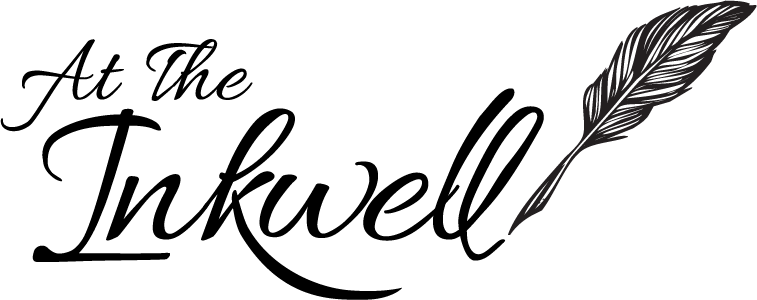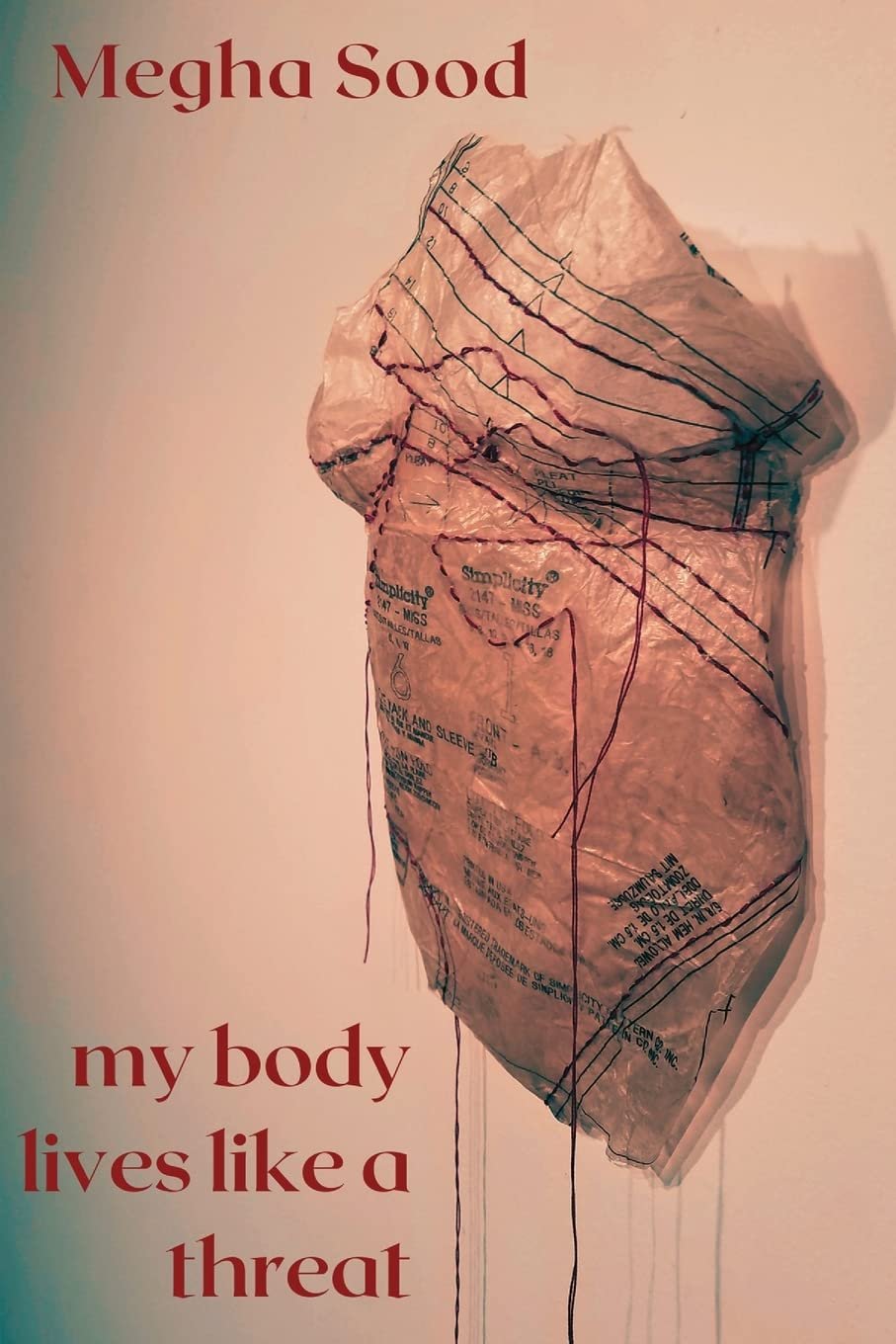My Body Lives Like a Threat
My Body Lives Like a Threat
by Megha Sood (Flowersong Press, 2022), $18
Megha Sood’s first full-length poetry collection, My Body Lives Like a Threat (Flowersong Press, 2022) is a powerful exposé of universal problems that have reached epic proportions. From the ongoing trauma of racism, war, xenophobia, sexism, and body-shaming, Ms. Sood’s words take us on a journalistic journey divided into five sections: Black Truth, War and Peace, My Body Is Not An Apology, A Just Immigration Policy, and My Body Lives Like A Threat. Do not expect sunshine and flowers. Ms. Sood’s poems are realistic and tough. Her words cut deep, exposing the wounds inflicted by hatred and prejudice.
In Black Truth, her first poem, “Peace – A Metaphor for Denial,” sets the need for social justice for the rest of book. White people live in the safety of their insular and privileged world, not caring about people of color or non-European immigrants. Ms. Sood, an immigrant, admits to having been born with a privilege to call her land her own, although it was already tainted by the blood of someone else. Peace is not peace when it’s a matter of perspective. The first and last stanzas sum it up:
Peace, an act of ignorance
an act of denial is not bliss no more
when silence is gutted like a fish
and blood of your own fills the street.
They sip the beer as cold as their souls,
leaving the scene with a shrug and a short sigh.
Ignorance is bliss. Peace is a metaphor for denial
in this country, I call mine.
Ms. Sood discusses global situations in the second section, War and Peace. In her poem, “A Fistful of Grain,” we read about genocide in Bosnia, Sudan, Iraq, Rwanda, and Syria. Sadly, genocide is like a cancer growth. Reading these stanzas, I can imagine what is going on in Gaza:
As the rumbling bulldozers move through her town
the earth-shattering truth starts
taking place in the hearts
of her people all around
Monsters hungry for power
chest thumping their existence,
take away the last sliver of hope
from her bleared eyes seeding them with pain
These mighty bulldozers—
that once built her beautiful city
gleaming with minarets and lush lanes,
are now used to dig mass graves
for her only son, peacefully buried,
with a fistful of grain.
As a woman, Ms. Sood gets personal in the third section, My Body Is Not An Apology.
Her final poem, which is the same title as this section, begins as a mantra to herself and womankind:
This body—
My body is not an apology
It’s a prayer . . .
Her poems are the expectations that women must fulfill in patriarchal societies. Don’t get old or fat. Be sexy, not smart. Be all “sugar and spice” and “everything nice.” Ms. Sood refuses to succumb to unrealistic standards.
The last two stanzas reflect her philosophy:
With love neatly folded in the wrinkles of my skin
warmth oozing from every pore of my being
a lesson etched in every single crow’s feet
forgiveness written through every inch of me
This body is not an apology.
It is a profound lesson
a triumphant proclamation;
an unfettered declaration.
The fourth section, A Just Immigration Policy, probes the horrors of being a migrant coming to the United States. Emma Lazarus’ words from “The New Colossus,” which is on the Statue of Liberty, do not apply today. Migrants and refugees who aren’t white are not welcomed.
There is no justice in the present immigration policy. In “Unforgiveable,” dreams are shattered. The hard truth is at the end of an AK 47—migrants are not welcomed at the gate of a new country:
The rugged terrain of those unforgiving lanes
the ones warmed by the scorched feet
parched throats,
these blisters and welts have a story to tell
suppurating skin begets mercy.
Dreams glimmering in those bleary eyes
shimmering with the hopes of a foreign land
across the barbed wires,
whose pointy edges deemed softer
than the poking end of an AK 47 rifle on my naked throat.
In the last section, My Body Lives Like A Threat, the poem of the same name tells us who Ms. Sood is. She writes with the power of her mind and body. She is unafraid, and we feel empowered by her words:
As I catch the words in my mouth
my language becomes an open threat
my razor speech falling sharp
on your dull convictions
we always exposed, our deepest and softest parts to heal.
that’s how the body learns
to heal,
to grow.
This world is on the brink of extinction, and poetry should be more than a description of roses or lovers. My Body Lives Like a Threat is a battle cry for justice and healing from patriarchal scars. Megha Sood has “scars” and isn’t afraid to show them. She, a poet warrior and physician, learned to open her heart chakra and report the truth. Read the book and join her in making this world a better place for all. Hope and humanity will prevail.
Patricia Carragon
Patricia Carragon’s recent publications: Five Fleas Itchy Poetry, Jerry Jazz Musician, Nat’l and Int’l Goddess, NBPF 2023 Festival Anthology, The New Verse News, The Rutherford Red Wheelbarrow, The Scene, Spillwords, Wales Haiku Journal, Waymark, Witchery-Issue 3- Summer 2023, et al. Her poem, “Wild Is the Wind,” received a 2024 Pushcart Nomination from Poets Wear Prada’s The Rainbow Project. Her debut novel is Angel Fire (Alien Buddha Press). Her books from Poets Wear Prada are Meowku and The Cupcake Chronicles. She hosts Brownstone Poets and is the editor-in-chief of its annual anthology. For more information about Ms.Carragon and her reading series, please check out her websites: brownstonepoets.blogspot.com and patriciacarragon8.wordpress.com/. Twitter:@ BrownstonePoets IG @patriciacarragon linktr.ee/patriciacarragon

